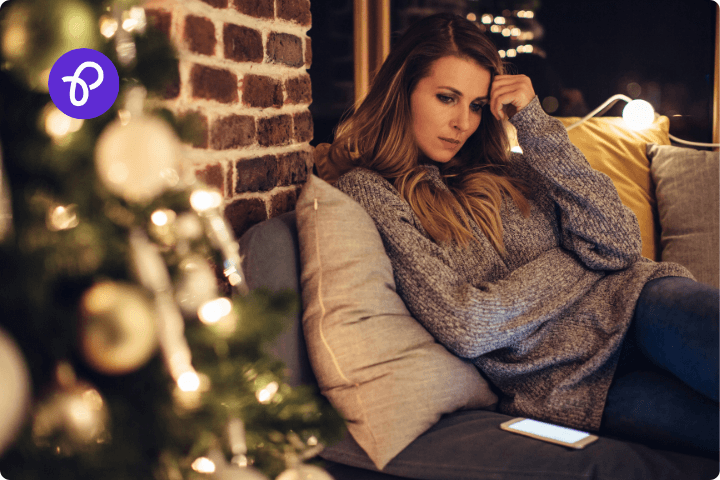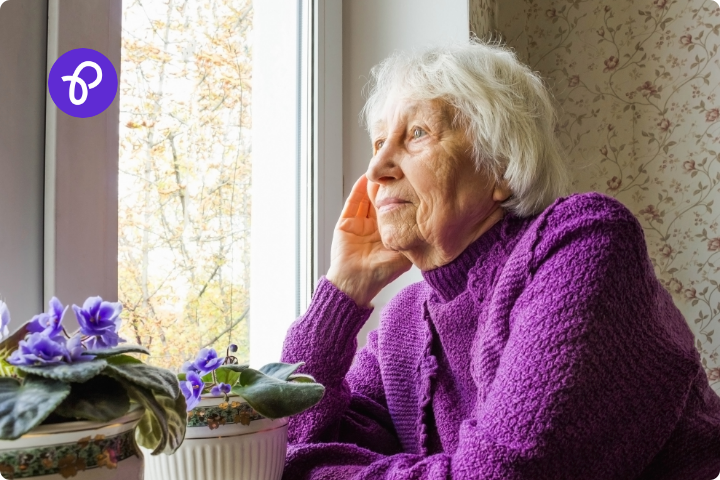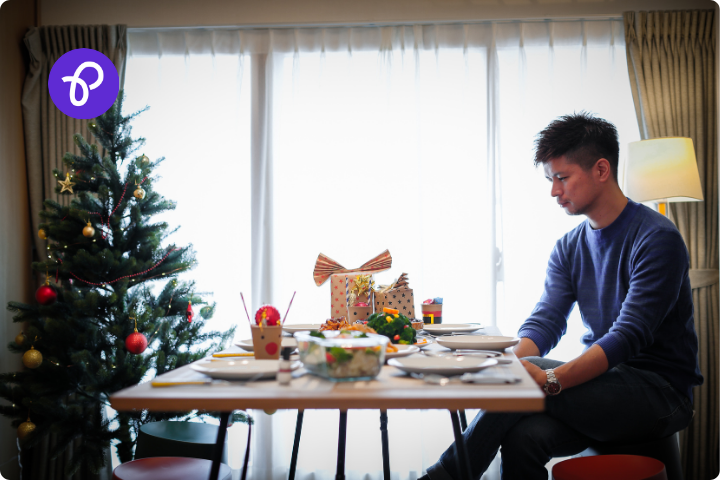All Articles
3 min read
Help and Support with Loneliness for Disabled People
Written by
Purpl
Published on
December 24, 2024

Loneliness is a growing concern in the UK, but for many disabled people, it can feel like an even greater challenge. While disability often brings physical barriers, the emotional and social impact, such as isolation, can be equally significant. Disabled people are more likely to experience loneliness due to a range of factors, including accessibility issues, societal attitudes, and limited opportunities for social interaction.
Purpl is a company created by disabled people for disabled people and we understand how tough it can be. If you are a Purpl member, you can join our private facebook group and make connections with like minded people, make new friends and hopefully feel a little more connected!
Why are Disabled People More at Risk of Loneliness?
According to research by the Office for National Statistics (ONS), disabled adults in the UK are four times more likely to feel lonely compared to non-disabled adults. Several factors contribute to this:
Physical Barriers: Many public spaces, events, and social venues remain inaccessible for people with mobility issues. Limited transport options can also prevent disabled individuals from participating in social activities.
Social Attitudes: Misconceptions about disability can make people feel excluded or undervalued, leading to a sense of isolation.
Health and Fatigue: Managing a disability often comes with chronic pain, fatigue, or other health challenges that limit socialising opportunities.
Economic Barriers: Financial pressures, including the cost of care and accessibility, can make it harder to engage in leisure or social activities.
Digital Exclusion: While online communities can help, not all disabled individuals have access to the internet or feel comfortable navigating digital platforms.
The Impact of Loneliness on Mental Health
Chronic loneliness can have a significant impact on mental health. Feelings of isolation are often linked to:
- Depression and anxiety
- Low self-esteem
- A reduced sense of purpose
- Declining physical health, due to limited activity and motivation

Support and Resources to Combat Loneliness in the UK
Fortunately, there are several charities, organisations, and initiatives designed to tackle loneliness among disabled people. These groups offer support, community connections, and practical advice:
Scope
Scope is a leading disability charity offering support, advice, and initiatives to empower disabled people. Their online community provides a safe space to connect, share experiences, and seek advice.
Website: www.scope.org.uk
Support Line: 0808 800 3333 – open Monday to Friday 8am to 8pm, Saturday to Sunday 10am to 6pm
Sense
Sense supports individuals with complex disabilities, including sensory impairments. They offer social activities, accessible events, and resources to help disabled people connect with others plus a buddying service to pair individuals with volunteers for friendship and social interaction.
Website: www.sense.org.uk
The Befriending Network (Befriending Services)
Many charities provide befriending services, where trained volunteers provide regular phone calls or visits to disabled people who feel isolated.
Visit: Befriending Networks to find services in your area.
The Silver Line
While primarily aimed at older adults, The Silver Line provides a free, 24-hour helpline and friendship service for anyone feeling lonely. They are particularly supportive of older disabled individuals.
24 Hour Helpline: 0800 4 70 80 90
Website: www.thesilverline.org.uk
Mind
Mind provides mental health support, including advice for managing loneliness and connecting individuals with local services. They also run peer support groups, many of which are accessible for disabled people.
Website: www.mind.org.uk
Support Line: 0300 123 3393 open 9am to 6pm, Monday to Friday (except bank holidays)
Leonard Cheshire
Leonard Cheshire works to improve the lives of disabled people by offering opportunities to get involved in community projects, activities, and events. They also provide employment and learning support.
Website: www.leonardcheshire.org
Local Disability Forums and Groups
Many local councils and disability support groups organise accessible events, clubs, and support networks. Check with your local council or organisations like Disability Rights UK for local initiatives. You can also check with your local council, library or GP clinic.
Website: www.disabilityrightsuk.org
Samaritans
Whatever you’re going through, a Samaritan will face it with you. They are there for anyone who needs them 24 hours a day, 365 days a year.
Website: https://www.samaritans.org
24 Hour Phone Line: 116 123
Andy’s Man Club
Andy’s Man Club want to eliminate the stigma surrounding mental health and create a judgment-free, confidential space where men can be open about the storms in their lives. They aim to achieve this through weekly, free-to-attend peer-to-peer support groups for men aged over 18 and use #itsoktotalk
Website: https://andysmanclub.co.uk/

Be Kind
Loneliness is a deeply personal experience, but no one should have to face it alone. For disabled people in the UK, reaching out for support can be the first step towards building connections and regaining a sense of belonging. With dedicated resources, charities, and compassionate communities, help is available. Together, we can create a society where everyone, regardless of ability, feels included and valued.
If you or someone you know is struggling with loneliness, take that first step today and make a phone call, speak to a friend or family member, join the Purpl Facebook group or connect with one of the organisations listed above. You’re not alone.
Related Articles
- Reverend and the Makers: Christmas songs, late night phone calls and the Samaritans
- #WeDeserveBetter: Anouska talks about using her journey through disability to create a cause
- The Accident that Changed my Life: Ella talks about FND and finding a new normal
